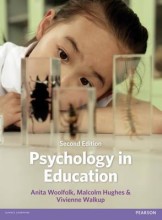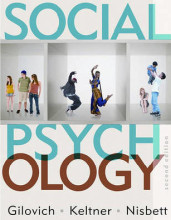Summary: Psychology In Education | 9781408257500 | Anita E Woolfolk, et al
- This + 400k other summaries
- A unique study and practice tool
- Never study anything twice again
- Get the grades you hope for
- 100% sure, 100% understanding
Read the summary and the most important questions on Psychology in Education | 9781408257500 | Anita E. Woolfolk ; Malcolm Hughes ; Vivienne Walkup.
-
1 Teachers, Teaching and Educational Psychology
This is a preview. There are 5 more flashcards available for chapter 1
Show more cards here -
Seven areas of professional knowledge, Expert teachers. L Shulman(1987)
1. The academic subjects they teach - their content knowledge is deep and interconnected.
2. General teaching strategies that apply in all subjects.
3. The curriculum materials and programmes appropriate for their subject and grade level.
4. Subject- specific knowledge for teaching: special ways of teaching certain pupuils and particular concepts, such as the best ways to explain negative numbers to lower-ability pupils
5. The characteristics and cultural backgrounds of learners
6. The settings in which pupils learn- pairs, small groups, teams, classes, schools, and the community/
7. The goals and purpose of teaching. -
Single-subject experimental studies
Systemetic interventions to study effects with one person, often by applying and then withdrawing a treatment -
2 Cognitive Development and Language
This is a preview. There are 1 more flashcards available for chapter 2
Show more cards here -
2.2 A Definition of Development
This is a preview. There are 5 more flashcards available for chapter 2.2
Show more cards here -
Development (physical, personal, social, cognitive)
Orderly, adaptive changes we go through from conception to death
General priciples:
1. People develop at different rates
2. Development is realively orderly.
3. Development takes place gradually -
3 Personal, Social and Emotional Development
This is a preview. There are 3 more flashcards available for chapter 3
Show more cards here -
3.8 Diversity and Identity
-
Racial and ethnic pride
A positive self-concept about one's racial or ethnic heritage -
4 Learner Differences and Learning Needs
-
4.2 Individual Differences in Intelligence
This is a preview. There are 16 more flashcards available for chapter 4.2
Show more cards here -
Emotional intelligence (EQ)
The ability to process emotional information accurately and efficiently -
4.3 Ability Differences and Teaching
This is a preview. There are 1 more flashcards available for chapter 4.3
Show more cards here -
Streaming or between-class ability grouping
System of grouping in which learners are assigned to classes based on their measured ability or their achievements -
4.5 Inclusion
This is a preview. There are 1 more flashcards available for chapter 4.5
Show more cards here -
Individual Education Plan (IEP)
This builds on the curriculum that a child with learning difficulties or disabilities is following and is designed to set out the strategies being used to meet each child's identified needs -
4.6 The Most Common Challenges
This is a preview. There are 7 more flashcards available for chapter 4.6
Show more cards here -
Learning difficulty/ disability
Problem with acquisition and use of language; may emerge as difficulty with reading, writing, reasoning and mathematics -
ADHD (attention deficit hyperactivity disorder)
Current term for disruptive behavior disorders marked by over activity, excessive difficulty sustaining attention or impulsiveness -
Emotional and behavioral disorders
Behaviors or emotions that deviate so much form the norm that they interfere with the child's own growth and development and/or the lies of others - inappropriate behaviors, unhappiness or depression, fears and anxieties and trouble with relationships
- Higher grades + faster learning
- Never study anything twice
- 100% sure, 100% understanding

































